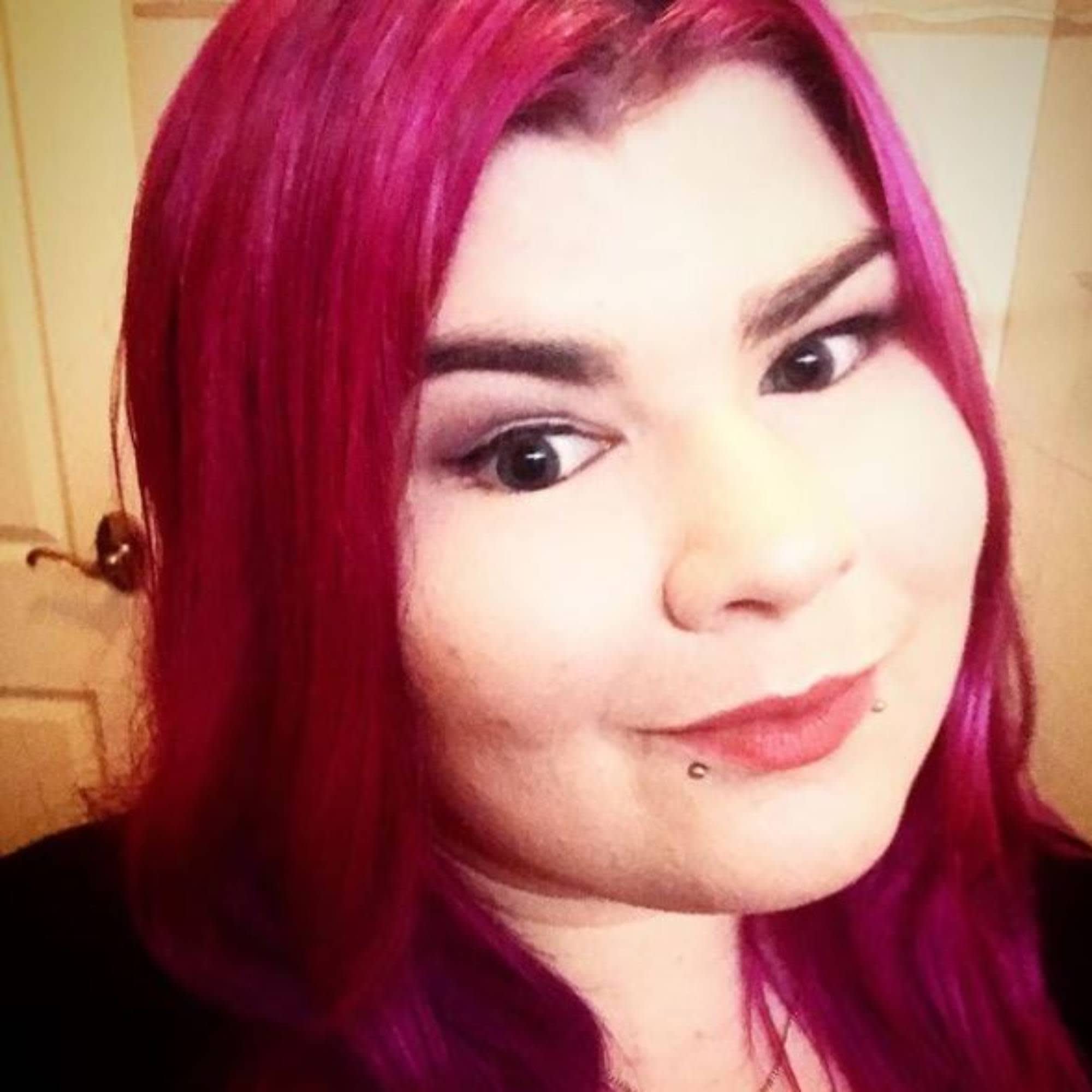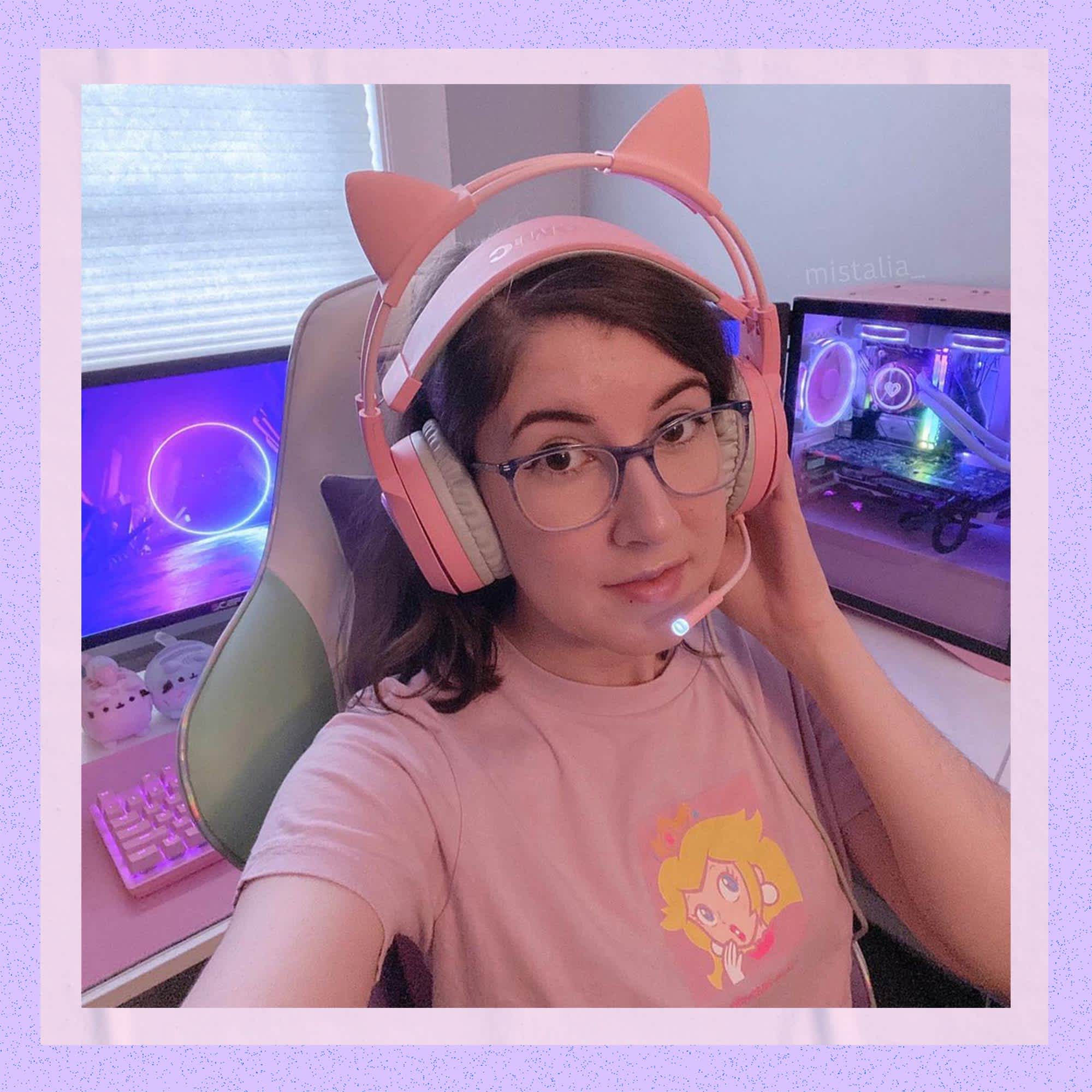
- POPSUGAR Australia
- Gaming
- “Games Were My Dearest Friends”: Zoe Simmons on Smashing the Stigma of Gaming
“Games Were My Dearest Friends”: Zoe Simmons on Smashing the Stigma of Gaming

When you think of a typical “gamer”, I’m probably not who you’d think of. I’m 26. Female. And I run my own successful copywriting business. And yet, I game almost every single day.
Gaming has a rather bad reputation. There’s this stereotype that the bulk of gamers are teenage males who spend too much time on their screens or young adults who are unemployed and have too much time on their hands — and that simply isn’t true.
Plenty of people enjoy gaming; people of all walks of life, careers and all ages. But I think there’s definitely this stigma that comes along with gaming. We see it in movies, on the news and on our social media feeds.
Parents, for example, often worry about their kids playing video games. They fear they’re spending too much time in virtual worlds, wasting their lives away. They fear their kids will become utterly obsessed, never leaving their screens and worry how this might impact them later in life — and if it will hinder their potential success.
Now, we’ve all heard of the horror stories of kids and teens obsessed with gaming, so I can’t say these things won’t happen — but they didn’t happen to me.
And I was 10000000 per cent one of those young kids obsessed with gaming. I still am — and I don’t think that’s a bad thing.
My PlayStation 1 held a special place in my heart from the moment we got it. I was enthralled by the new worlds I could explore, the new people I could be and the challenges I could overcome. So, naturally, I played a lot.
Often, I’d come home from school and jump straight into a game of some sort. It was relaxing, entertaining and a way to blow off steam and escape the world outside. When school holidays came around, I’d spend a large portion of my day gaming.
Now, you might be thinking “gee, what a waste of time”. But it wasn’t for me. It may not be entirely conventional, but even in fictitious worlds, I made a lot of good memories. And it wasn’t just playing the games themselves: it was who I gamed with that made it special.
Like my mum, who learned how to ace Crash Bandicoot on our PlayStation 1 so she could finish the levels that I, a then 5-year-old, couldn’t. Or my cousin, with whom I’d play all sorts of games like Spyro, Crash Bandicoot, Harry Potter and even Sonic the Hedgehog on the old SEGA. Like my brother, who I played Frogger with until we clocked almost every level in record time. Like my best friends in high school who’d join the battle to save Earthrealm in Mortal Kombat.
As I grew up, games were some of my dearest friends. They were a safe space I could always turn to. And they helped me make oodles of new friends — even now, as an adult. There’s nothing quite like bonding with someone over gaming banter. Especially in a world of lockdowns and restrictions, where socialising and friendship can be rather challenging.
Throughout my whole life, there have been so many benefits to gaming. Were they distracting? Honestly: sometimes. So much so that when I started my degree at the University of Wollongong, mum didn’t want me to save up for the then-new PlayStation 4. She worried it would impact my studies — but it didn’t. It never has.
I’ve regularly gamed, and still topped most of my classes in school. I’ve regularly gamed, and still completed a degree where I was in the top 15 per cent of my cohort. I’ve regularly gamed while working in government communications, and while starting and running my own business — and it has not impacted my success one little bit.
In fact, it’s probably made life more bearable, and made it easier to kick butt. So, I definitely don’t think gaming deserves the stigma. It can be magical and so beneficial, especially for our mental health.
But I get that parents will always worry about their kids. Mine worried about me, too. But as long as you still have drive, as long as you have goals, and as long as you do occasionally pop outside to the real world, you’ll be fine.
Personally, I don’t think there is a stereotypical gamer — other than the fact that we’re connected by a mutual love of video games. The gaming community is so diverse, and we’re so much more than the stereotype of angsty, rage-quitting youngsters or no-hopers who are wasting their days away.
We are professionals, too.
Gaming has been nothing but good for me — despite all the negativity associated with it. It’s not a waste of time. It hasn’t ruined my life. I have not resorted to violence as a result of playing violent games. And I am making something of myself.
Video games are a hobby — just like any other hobby.
It doesn’t dictate who you are, or what you do. It’s just a way we bring a little more joy into our lives.
Zoe Simmons is a journalist and budding author who writes to make a difference. She’s also a mental health, chronic pain and bushfire recovery advocate, writing her first book about her town’s survival in the Black Summer bushfires. Check out Zoe’s website, or find her on Facebook, Instagram, LinkedIn or Twitter for more!


